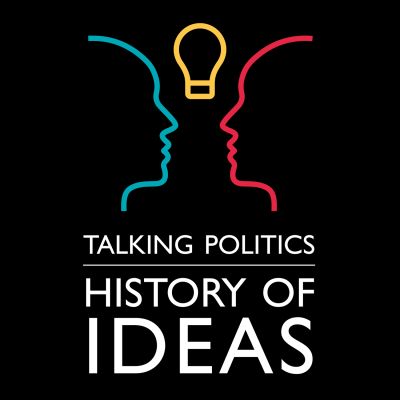A new series of talks by David Runciman, in which he explores some of the most important thinkers and prominent ideas lying behind modern politics – from Hobbes to Gandhi, from democracy to patriarchy, from revolution to lock down. Plus, he talks about the crises – revolutions, wars, depressions, pandemics – that generated these new ways of political thinking. From the team that brought you Talking Politics: a history of ideas to help make sense of what’s happening today. Hosted on Acast. See acast.com/privacy for more information.
https://play.acast.com/s/history-of-ideas
Gesamtlänge aller Episoden: 20 hours 5 minutes
Douglass on Slavery
My Bondage and My Freedom (1855) by the former slave Frederick Douglass was the second of his three autobiographies and the one that contained his most radical ideas. In this episode David explores how Douglass used his life story not only to ...
Bentham on Pleasure
Jeremy Bentham’s Introduction to the Principles of Morals and Legislation is a definitive early statement of the basis of utilitarianism: how do we achieve the greatest happiness of the greatest number? David looks at Bentham’s rationale for t...
Rousseau on Inequality
Jean-Jacques Rousseau’s Discourse on Inequality (also known as the Second Discourse) tells the story of all human history to answer one simple question: how did we end up in such an unequal world? David explores the steps Rousseau traces in th...
Q & A with David
We got lots and lots of excellent questions from listeners about the themes and ideas in this series of talks. In this extra episodeDavid will do his best to answer some of them, from Hobbes to Weber, and from Gandhi to feminism. Plu...
Fukuyama on History
Francis Fukuyama’s The End of History (1992) became associated with the triumph of liberal democracy at the end of the twentieth century. But was Fukuyama really a triumphalist? David explores what Fukuyama had to say about the streng...
MacKinnon on Patriarchy
Catharine MacKinnon’s Toward a Feminist Theory of the State (1989) challenges two dominant ways of thinking about politics: liberalism, which wants to protect us from the power of the state, and Marxism, which wants to liberate us through the power of ...
Fanon on Colonialism
Frantz Fanon was a psychiatrist who both experienced and analysed the impact of colonial violence. In The Wretched of the Earth (1961) he developed an account of politics that sought to channel violent resistance to colonialism as a force for ...
Arendt on Action
Hannah Arendt’s The Human Condition (1958) is a remarkably prophetic book. At its heart is an analysis of the relationship between labour, work and action, set against a time of rapid technological change. Arendt worried about the pow...
Hayek on the Market
Friedrich Hayek’s The Road to Serfdom (1944) was written during the Second World War but Hayek was really worried about what would come next. He feared that wartime planning would spill over into the peacetime economy and destroy hard won free...
Weber on Leadership
Max Weber’s The Profession and Vocation of Politics (1919) was a lecture that became one of the defining texts of twentieth century political thought. In it, Weber explores the perils and paradoxes of leadership in a modern state. Is ...
